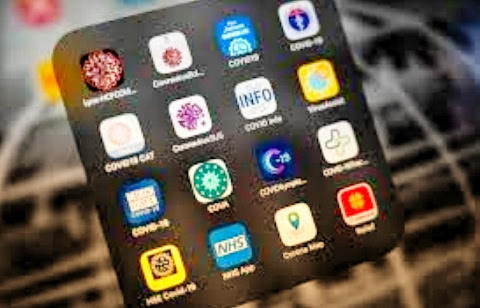The World Health Organisation had lauded India’s efforts in building as well as launching a contact tracing app called Aarogya Setu to track those who may have come into contact with an infected individual. As the number of cases continues to increase with community transmission being one of the most major causes for such a boost, these apps which work on Bluetooth technology have inspired other companies and countries all over the world to further the cause of proper tracking and alerting citizen.
“Big companies take the lead”
Singapore was among the first to roll out a contact-tracing app. TraceTogether launched on March 20, and more than a million of Singapore’s 5.7 million residents installed it by mid-April.
The system uses Bluetooth, and data is crunched securely on each individual’s phone, making it a precursor to the Apple and Google plan. Due to relatively low adoption, the country still had to institute a strict lockdown.
“US apps”
Utah’s HealthyTogether app uses Bluetooth and location data to track people’s whereabouts and go back to see who they might have been in contact with if they test positive. The app also lets people input their symptoms and connects them to a testing centre if they’re deemed high risk.
Nodle, a startup that has developed Bluetooth applications in the past, is building its own app that follows similar principles to Apple and Google’s plan. Using Bluetooth, it keeps tabs on interactions between people and can notify users if they’ve come into contact with someone who has Covid-19. It’s a global app but is being tested in Berkeley, California right now.
“European apps”
European countries which have been some of the most severely impacted countries have also set certain guidelines to develop similar contact-tracing apps with strict instructions to dismantle the app once the pandemic ends.
Iceland’s app, called Ranking C-19, uses smartphone location data, which must be enabled at all times to work. Once set up, the app runs in the background and saves the phone’s location several times per hour, storing the data on the phone itself and deleting it after 14 days. Using location instead of Bluetooth can give health authorities richer data about the virus’s spread, but it also makes it easier for governments to track individuals in a way that could infringe on privacy.
Austria and Switzerland are building apps based on an approach called DP-3T, designed
collaboratively by researchers to preserve user privacy. Some of its principles are similar to Google and Apple’s approach and it uses Bluetooth in the same way. The effort is strictly opposed to centralized apps that let governments and health authorities store and access information.

“Important use of technology”
Several such apps are being developed all over the world to make it easier to obtain data and quarantine those who are at risk or already infected. Measures like these make it possible to stop the spread of the disease especially in densely populated areas as it alerts the citizens as well to ensure that they themselves are vigilant. Community transmissions are probably one of the greatest threats faced by the world as the pandemic has the potential to blow up further if not contained at this stage.
Recently, Google and Apple had teamed up to develop a similar app which would be available on both the Apple iTunes store as well as the Google Play store. This app which is said to be launched mid-May will allow a more accessible platform to both doctors, government officials as well as citizens enabling them to be more cautious and vigilant. The app seeks to gather data while maintaining privacy and making it accessible to health officials. This app is to be made available all over the country to ensure all governments are equipped to handle and track the spread of the on-going pandemic.
“Asian Apps”
Asian countries had paved the way for the use of this technology, specifically China, South Korea and Singapore due to their previous experience with the SARS outbreak. Many governments already had systems in place making it easier for white-collar hackers to mould a system which relies on this technology to help the government track the spread even before a proper outbreak.

